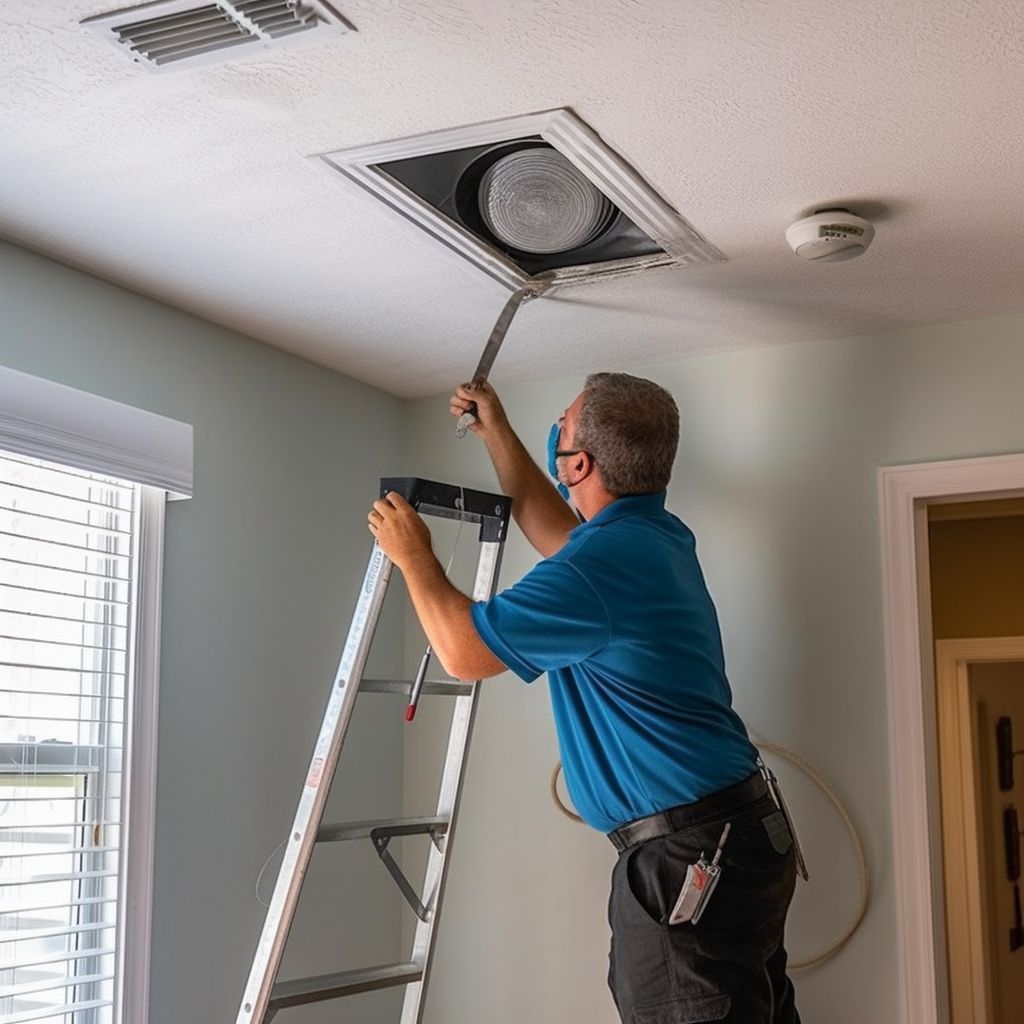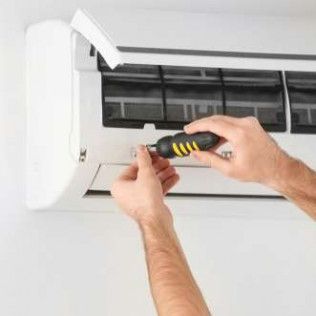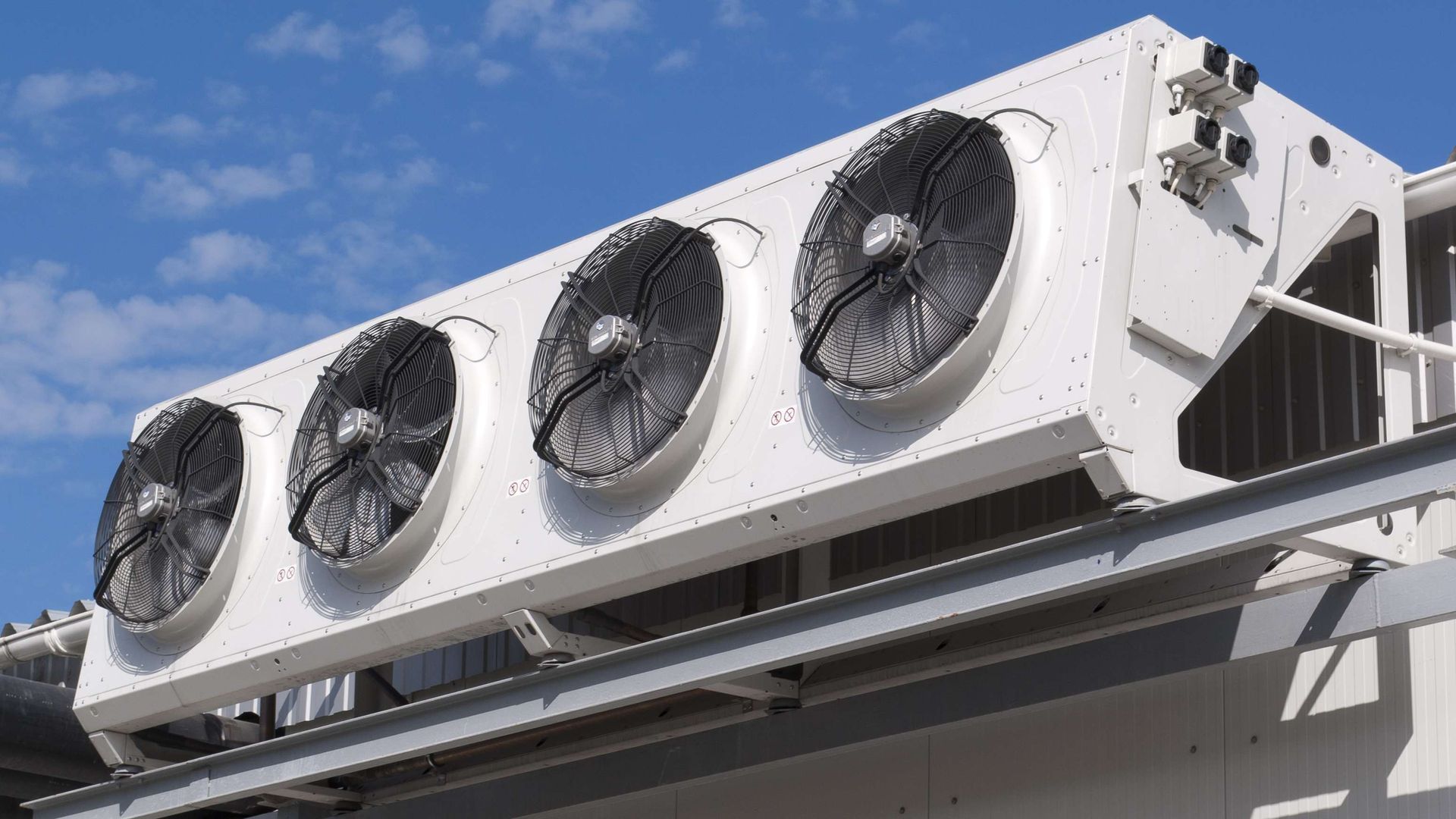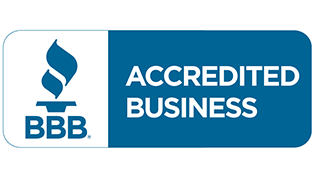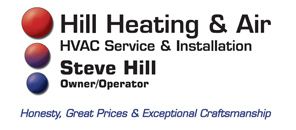Questions to Ask an HVAC Contractor Before Hiring
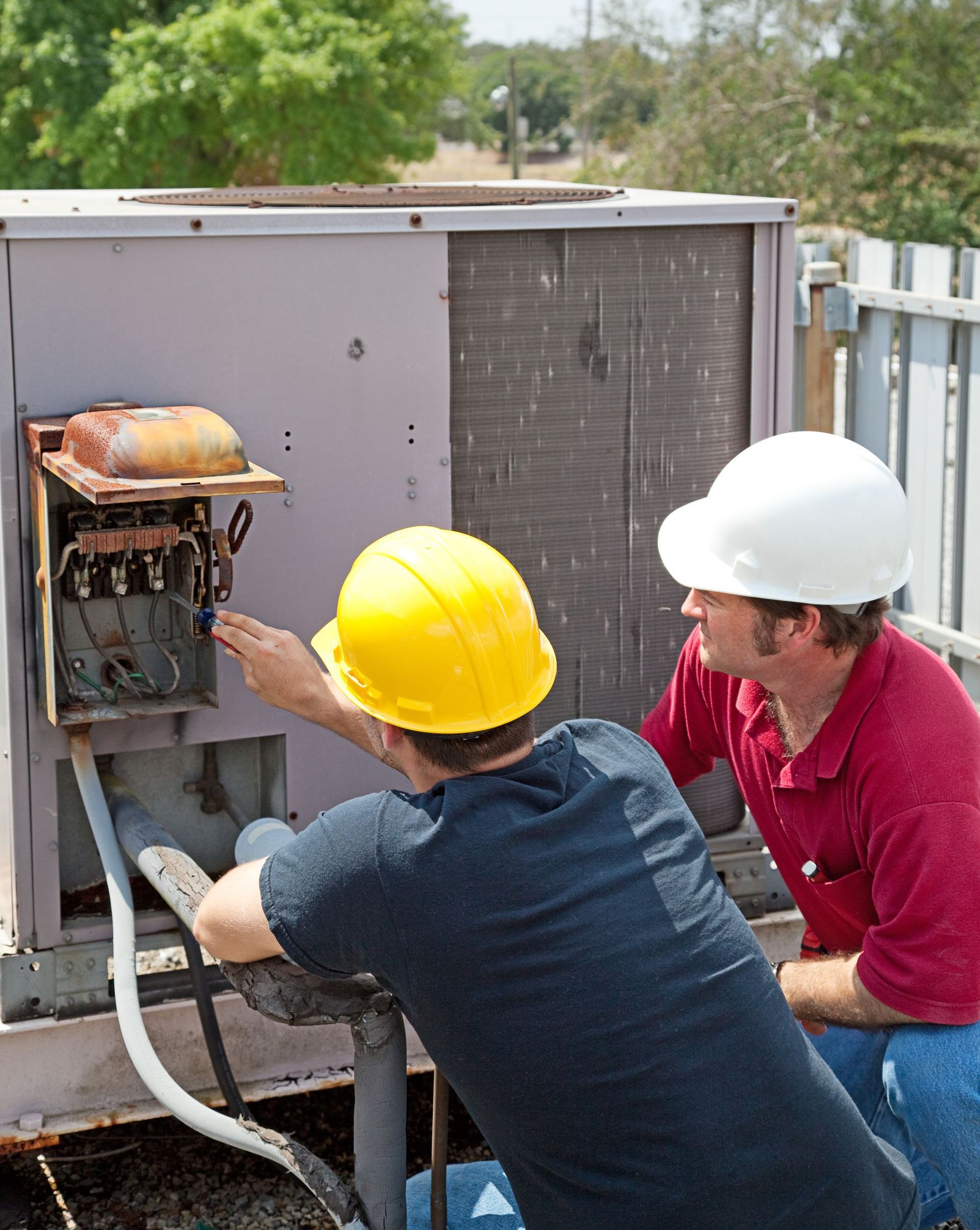
The wrong choice when hiring the right HVAC contractor can lead to poor installations, frequent repairs, and higher costs. Asking the right questions ensures you get a reliable, skilled, and cost-effective professional. Whether you need HVAC repair service, HVAC maintenance service, or a new HVAC installation, this guide will help you choose wisely.
Are You Licensed and Insured?
Start by asking if the HVAC contractor is licensed and insured.
Why is Licensing Important?
A licensed HVAC contractor has the training and knowledge to do the job right. They meet local and state requirements, which means they know the rules and standards for HVAC work. This is important for both residential HVAC contractors and commercial HVAC contractors.
"When I needed a residential HVAC service, I made sure the contractor was licensed. It gave me confidence that the job would meet local codes."
Why is Insurance Crucial?
Insurance protects you if something goes wrong. If a contractor is insured, you won’t be held responsible for accidents or damages during the job. They should have both liability insurance and workers' compensation. Liability insurance covers property damage, while workers' compensation covers injuries.
"During my last HVAC repair service, I asked about insurance. Knowing they had full coverage made me feel secure."
Verify Licenses and Insurance
Always verify the contractor’s license and insurance. Check with your local licensing authority. This step ensures you’re dealing with a legitimate professional, whether it's for HVAC installation, AC repair, or a heating system installation.
What Experience Do You Have with HVAC Systems?
Importance of Experience
Experience matters. An HVAC contractor with years of experience knows how to handle different systems. They understand the common issues and the best solutions. Whether it's a commercial HVAC service or a residential HVAC service, experience ensures quality work.
"For a complex heat pump installation, I chose a contractor with over 10 years of experience. Their expertise made a huge difference."
Types of Systems Handled
Ask about the types of systems they’ve worked with. Residential, commercial, and specific brands all require different skills. Make sure they have experience with the system you need. This could be for AC repair, furnace repair, or air conditioning installation.
Past projects
Ask for examples of past projects. This gives you a sense of their work quality. Look for testimonials from previous clients. These can often be found on the contractor's website or through online reviews.
Can You Provide References from Previous Clients?
Importance of References
References build trust. They give you a chance to hear directly from past clients. Good references are a sign of a reliable contractor. They can confirm the contractor's quality of work and professionalism.
"I always ask for references. It helps me feel confident about my choice."
What to Look for in a Reference
Ask specific questions. Were they satisfied with the HVAC maintenance service? Did the contractor complete the HVAC installation on time? How was the communication? Good feedback means you can expect the same quality of service.
Contact Information
Get contact information for references. A trustworthy contractor will gladly provide this. Call or email these references to get their insights.
What Brands Do You Work With?
Importance of Brand Familiarity
The brands an HVAC contractor works with can tell you a lot. Some contractors specialize in certain brands. This can be crucial for repairs or installations. Brand familiarity ensures the contractor knows the ins and outs of the system.
"For my air conditioning installation, I chose a contractor experienced with Carrier units. It made the process smooth and hassle-free."
Pros and Cons of Different Brands
Different HVAC brands have their strengths and weaknesses. Some are known for reliability, others for energy efficiency. Ask the contractor which brands they recommend and why. This helps you understand the best options for your needs.
Compatibility with Existing Systems
If you’re replacing an old unit, make sure the new one is compatible. Ask the contractor if they can work with your existing setup. This is important for seamless integration and avoiding extra costs.
Do You Offer Written Estimates?
Necessity of Written Estimates
Always get a written estimate. It protects you from unexpected costs. A written estimate outlines all expenses. This includes labor, materials, and any extra fees. It ensures transparency and prevents disputes.
"When I hired a contractor for a heating system installation, their detailed estimate helped me budget properly."
What Should Be Included
A good estimate should be detailed. Look for itemized costs. This includes the price of parts and the cost of labor. It should also cover the project timeline. Make sure there are no hidden fees.
Comparing Estimates
Get estimates from multiple contractors. This helps you compare costs and services. It’s not just about finding the cheapest option. Look for value and quality. The best HVAC contractor might not be the least expensive but offers the best service.
What is Your Payment Schedule?
Typical Payment Schedules
Understanding the payment schedule is crucial. Most contractors require a deposit upfront. The remaining balance is paid in installments or upon completion. Ask for a detailed payment plan before starting any work.
"For my HVAC installation, the contractor requested a 30% deposit, with the rest due after the work was completed."
Importance of Clear Terms
Clear payment terms prevent misunderstandings. Ensure the payment schedule is part of the written contract. This includes any milestones for partial payments. Knowing the terms helps you plan your finances.
Negotiating Payment Terms
You might be able to negotiate the payment terms. For larger projects, suggest splitting payments based on project phases. This can make the financial burden easier to manage. Always get any changes in writing.
Do You Offer Maintenance Plans?
Benefits of Regular Maintenance
Regular maintenance keeps your HVAC system running efficiently. It extends the lifespan of the equipment and reduces the need for repairs. Ask if the contractor offers HVAC maintenance service or HVAC tune-ups.
"I signed up for an annual AC maintenance plan. It includes two tune-ups per year and priority service."
What's Included in a Maintenance Plan
A good maintenance plan covers routine checks and minor repairs. This includes cleaning filters, inspecting components, and checking for leaks. Some plans offer discounts on parts and labor.
Cost and Frequency
Ask about the cost and frequency of maintenance visits. Some contractors offer monthly, quarterly, or annual plans. Choose the one that fits your needs and budget.
What Warranties Do You Offer?
Types of Warranties
Warranties provide peace of mind. There are different types: labor warranties, parts warranties, and manufacturer warranties. Ask the contractor what warranties they offer for HVAC installation or repairs.
"For my air conditioning installation, the contractor offered a 5-year parts warranty and a 1-year labor warranty."
Importance of Understanding Terms
Read the warranty terms carefully. Understand what is covered and for how long. Some warranties cover only specific parts, while others may include labor. Knowing the details can save you money on future HVAC repair services.
Comparing Warranties
Compare warranties from different contractors. Look for the best coverage. This can include extended warranties or options to purchase additional coverage. A contractor with the best warranty is often a sign of confidence in their work.
How Do You Handle Permits and Inspections?
Necessity of Permits and Inspections
Permits and inspections are essential for compliance. They ensure the work meets local building codes and safety standards. Ask if the contractor handles the permits and schedules the inspections.
"During my heating system installation, the contractor took care of all permits and inspections. It made the process hassle-free."
Contractor’s Role
The contractor should be responsible for obtaining permits. They should also be present during inspections. This shows their commitment to quality and compliance.
Ensuring Compliance
Verify that all work will be inspected. This can include HVAC repair service, new installations, or replacements. Compliance with local codes ensures the safety and efficiency of your HVAC system.
How Do You Ensure Safety During Installation?
Safety Protocols
Safety during HVAC installation is crucial. Ask the contractor about their safety protocols. They should follow industry standards to prevent accidents. Safety measures include proper equipment handling and adherence to guidelines.
"For my furnace repair, the contractor wore protective gear and followed strict safety protocols. It was reassuring."
Training and Certification
Find out if the contractor's team is trained and certified in safety procedures. Proper training reduces the risk of accidents. Certifications from recognized bodies are a plus.
Safety Record
Ask about the contractor’s safety record. A good safety record indicates a commitment to safe practices. Contractors should be transparent about any past incidents and how they were handled.
How Do You Handle Unexpected Issues?
Addressing Unforeseen Problems
Unexpected issues can arise during HVAC work. Ask how the contractor handles these situations. They should have a plan for dealing with unforeseen problems quickly and efficiently.
"During my heat pump installation, an issue with the ductwork came up. The contractor handled it smoothly without extra charges."
Communication
Good communication is key. The contractor should inform you immediately if any issues arise. This ensures transparency and keeps you in the loop.
Cost Management
Inquire about additional costs for unexpected issues. A good contractor will try to minimize extra charges and find cost-effective solutions. Clear terms in the contract can help manage these situations.
What is Your Policy on Clean-Up and Disposal?
Clean-Up Procedures
Clean-up is an important part of any HVAC job. Ask the contractor about their clean-up procedures. They should leave your home as clean as they found it. This includes removing all debris and cleaning up any mess created during the installation or repair.
"After my air conditioning installation, the contractor cleaned up all the packaging and debris, leaving no mess behind."
Disposal of Old Equipment
Proper disposal of old equipment is crucial. The contractor should handle this for you. They should dispose of old units in an environmentally friendly manner. Ask if they recycle old parts and materials.
Responsibility
The contractor should take full responsibility for clean-up and disposal. It should not be an extra burden on you. Ensure this is included in the contract to avoid any misunderstandings.
Conclusion
Asking the right questions helps you hire the best HVAC contractor. Check for licenses, insurance, experience, and references. Get written estimates, understand payment schedules, and ask about maintenance plans and warranties. Ensure the contractor handles permits, follows safety protocols, and is prepared for unexpected issues. Confirm their clean-up and disposal policies.
For reliable HVAC services in South Jordan and Salt Lake City, we recommend Hill Heating and Air. They offer:
- HVAC Contractor
- AC Installation and Replacement
- AC Repair
- AC Maintenance
- Heating Installation and Replacement
- Heating Repair
- Heating Maintenance
Frequently Asked Questions
How long does a typical HVAC installation take?
A typical HVAC installation can take one to three days. The exact time depends on the system's complexity, the size of your home, and any additional work needed, such as ductwork or electrical upgrades.
What factors influence the cost of HVAC installation?
Several factors influence the cost of HVAC installation, including the type and size of the system, the complexity of the installation, the condition of existing ductwork, and the local labor rates. Brand choice and additional features like smart thermostats can also affect the cost.
How often should I replace my HVAC system?
Most HVAC systems last between 10 to 15 years. If your system is older than this, frequently needs repairs, or is inefficient, it might be time to replace it. Regular maintenance can extend the lifespan of your system.
What are the signs that my HVAC system needs repair?
Common signs your HVAC system needs repair include strange noises, weak airflow, inconsistent temperatures, high energy bills, and frequent cycling on and off. If your system is not keeping your home comfortable, it’s time to call a professional.
How can I improve the energy efficiency of my HVAC system?
To improve energy efficiency, regularly change air filters, schedule routine maintenance, seal ducts, and consider upgrading to a programmable thermostat. Proper insulation and energy-efficient windows can also help reduce your system's workload.
What should I do if my HVAC system stops working?
If your HVAC system stops working, check the thermostat settings and circuit breakers first. Ensure the air filter is clean. If the system still doesn’t work, contact a professional HVAC repair service. Do not attempt major repairs yourself.
How can I extend the lifespan of my HVAC system?
Regular maintenance is key to extending the lifespan of your HVAC system. Change filters every 1-3 months, schedule annual tune-ups, keep the area around your outdoor unit clear of debris, and ensure your system is properly sized for your home.
What are the latest trends in HVAC technology?
Current trends in HVAC technology include smart thermostats, high-efficiency systems, ductless mini-split systems, and advanced air filtration systems. Energy-efficient and environmentally friendly refrigerants are also becoming more common.
Contact Us
Contact Us
We will get back to you as soon as possible.
Please try again later.
HILL HEATING & AIR, LLC
South Jordan, UT 84095
CALL US
Phone: (801) 860-0655
HOURS | 24/7 AFTER HOURS AND WEEKENDS
- Mon - Fri
- -
- Sat - Sun
- Closed
HILL HEATING & AIR, LLC
Salt lake city , UT 84130 United States of America
CALL US
Phone: (801) 860-0655
HOURS | 24/7 AFTER HOURS AND WEEKENDS
- Mon - Fri
- -
- Sat - Sun
- Closed
Copyright © 2023 Hill Heating & Air, LLC, all rights reserved.

